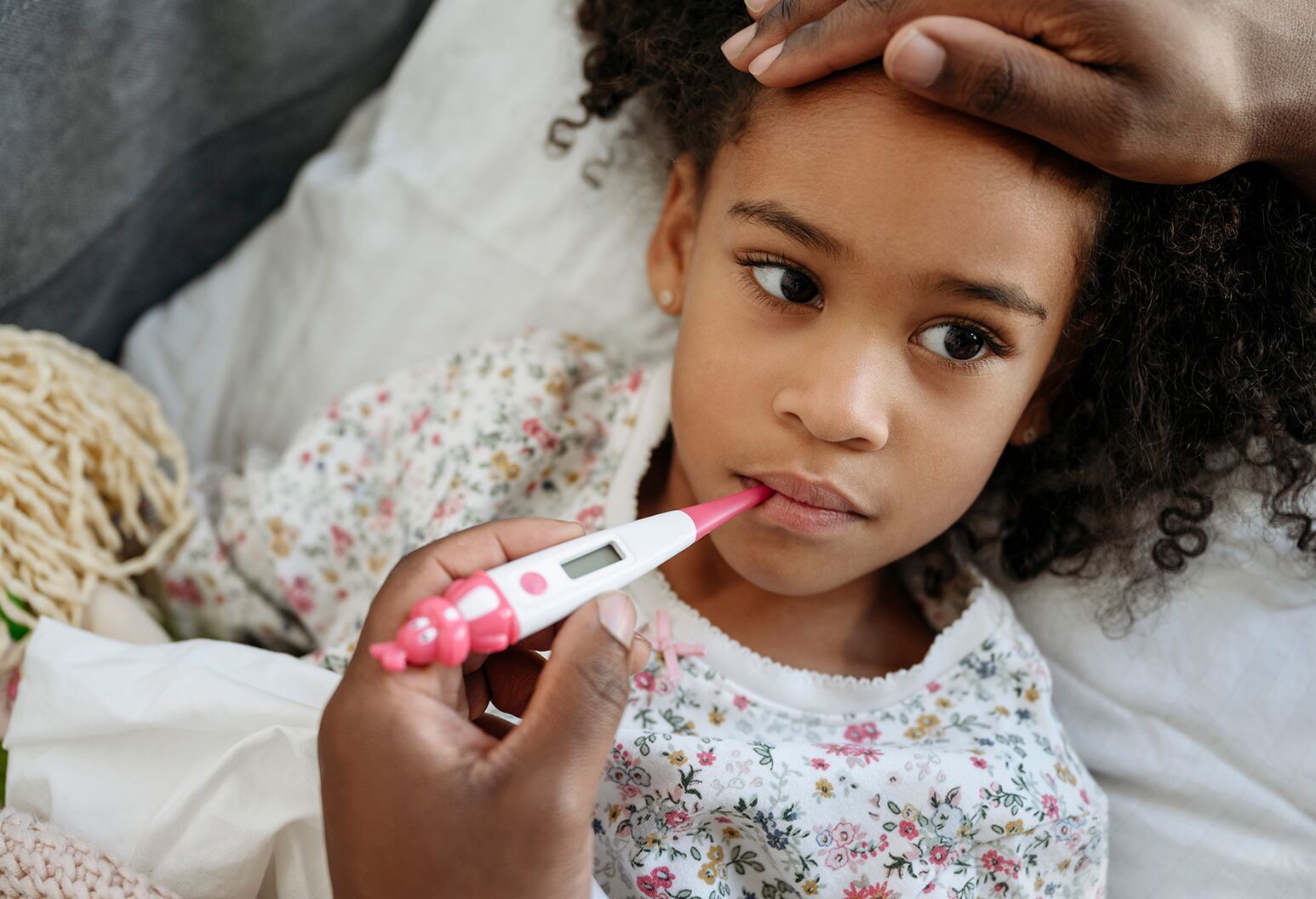infectious disease
Can Vitamin A Prevent Measles?

Fevers can mean different things to different people—which can make assessing them a little difficult. Here’s how to make sense of fevers.
4 min read
Since people associate fever with being sick, it can cause panic in many—especially parents of babies and young children. “Fever is a sign that the body is putting up a fight,” says Maryann Buetti-Sgouros, MD, FAAP, chair of pediatrics at Northwell Health's Northern Westchester Hospital.
But it’s not always clear what is (and isn’t) considered a fever. “Although there is some variability in the body temperatures of different individuals (i.e., some people run hot while some are more chill), the definition as used when studying the implications of a fever is a temperature of 100.4 degrees (F),” says Buetti-Sgouros.
Of course, different factors also play a role in determining what is a fever—and when a trip to the doctor’s office is warranted.
When a baby is under 2 months old, “A temperature of 100.4 degrees or above is considered an emergency,” says Buetti-Sgouros.
For babies over 2 months old who are running a low-grade fever (below 100.4), it could signify that something is brewing but isn’t of concern, at least not yet. Often, a child will “run hot” before getting a minor virus like a cold or if they are fighting off illness.
Another thing to consider is how warmly your child is dressed before racing off to the emergency room. “In many cases, before anyone panics that the baby is sick, I always ask my parents to unswaddle the baby and reassess the temperature in 10 minutes,” explains Buetti-Sgouros. “The most common reason I find for a baby to have a temperature of 100.4 degrees and act otherwise normally is that the baby is overdressed. No baby should be dressed like they are going to Alaska if the home temperature feels like Jamaica!”
If your baby is dressed appropriately and has a fever over 100.4 degrees—and especially if they aren’t their usual self—it’s a good idea to check in with your health care provider.
By providing your email address, you agree to receive email communication from The Well.
There is a certain amount of variability in older children when it comes to fevers, with much of it depending on how the person feels and not just what the thermometer says. Some people feel unwell with a low fever, and others never register any sickness at all. “There are also people, especially kids, that only run fevers over 104 degrees,” says Buetti-Sgouros. This can certainly give parents a fright.
“I often tell parents that I care less about the actual height of the temperature and more about how the person feels and acts,” she says. “A child with a temperature of 103.5 degrees that is playful and eating is much less of a concern than a 1-year-old with a temperature of 100.9 degrees that is not drinking fluids and irritable.”
There are some instances of fever that you should always get checked out. According to Buetti-Sgouros, any fever that is associated with a sore throat, a cough that causes respiratory distress, or that persists for more than two days in a child over 2 months old should be evaluated to rule out infection or other illness that may warrant medication or other medical intervention.
“In older children, a fever that has been smoldering for days and is associated with symptoms such as joint aches and fatigue should be assessed,” says Buetti-Sgouros.
Some doctors think a fever should run its course in many cases because it's the body’s response to inflammation. They believe it may aid in helping someone get better faster.
Others are all for medicating a fever to reduce or eliminate it. As for Buetti-Sgouros’ opinion, she believes in giving a fever reducer if the fever is preventing your child from doing their activities of daily life, like playing, eating, drinking, and sleeping. They can be especially helpful if you’re waiting for antibiotics to kick in and help your child feel better after an infection.
The Well is Northwell Health’s commitment to the future of health care. In this time of information overabundance, much of which is inaccurate, unhelpful, or even difficult to understand, Northwell Health is on a mission to make a difference as an honest, trusted, and caring partner. The site connects with consumers to provide them with personalized content that reduces their stress, makes them laugh, and ultimately feel more confident and capable on their healthcare journey.